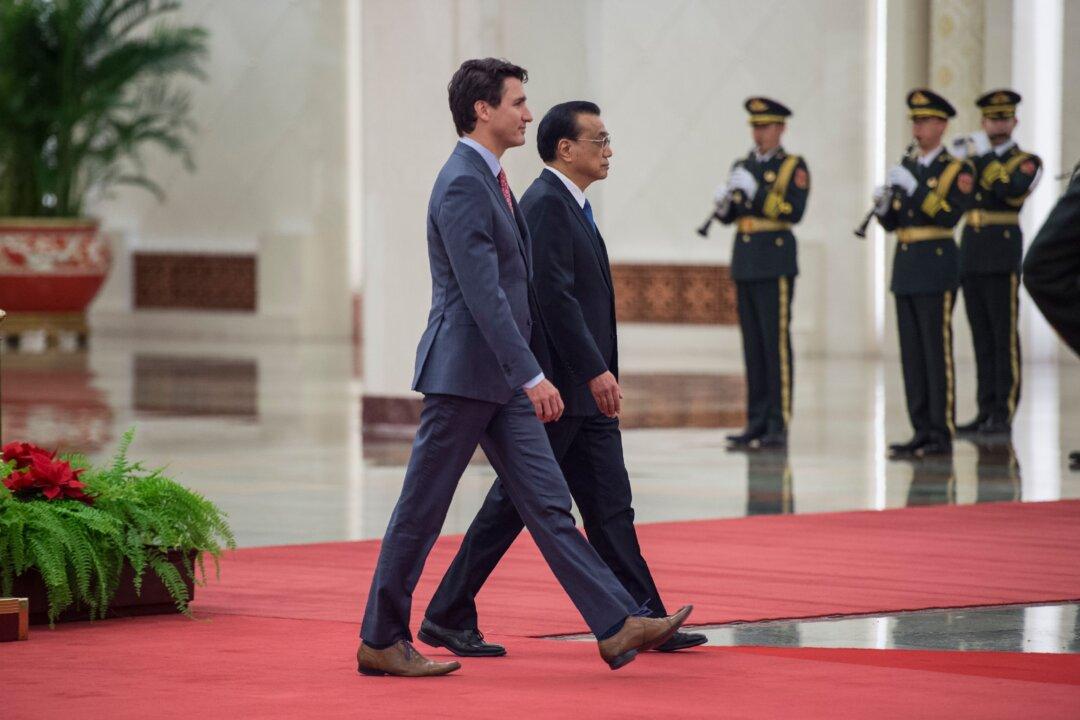China’s record on inconsistent rule of law and not living up to its trade commitments, however, should make it clear that even if the communist regime agrees to Trudeau’s requirements, it may not abide by them. China’s track record is exemplified by the huge gap between its WTO commitments and actual practices as well as its horrendous human rights infractions, despite being listed as a signatory of the Universal Declaration of Human Rights.
‘Stronger Relationship’
When Trudeau embarked on his first official China trip last year, he said he raised the issue of human rights with the Chinese leadership. And to his credit, he repeated Canada’s insistence on human rights and freedom of expression publicly to the Canada China Business Council while in Shanghai.“I think there are ways in which a stronger relationship makes it easier for our two countries to have regular, frank discussions on issues like good governance, human rights, and the rule of law,” he told the audience.
Whether this “stronger relationship” will lead to actual results in improving human rights in the totalitarian-ruled country is the burning question.
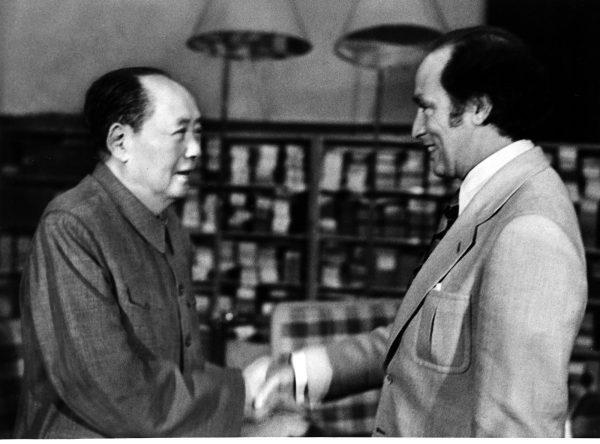
It’s been some 45 years since Pierre Trudeau made his official trip to China in 1973, becoming the first Canadian prime minister to visit communist China and paving the way for other Western democracies to establish ties with the Chinese Communist Party (CCP).
But the warmer relations did little to deter the CCP from killing thousands of students and other citizens two decades later in Beijing.
“History gave the CCP a choice. Either it could respect its people and truly improve human rights or it could continue to commit abuses inside China while pretending to the outside world to respect human rights in order to evade international condemnation. Unfortunately, consistent with its despotic nature, the CCP chose the second path without hesitation.”
The aftermath of the massacre saw the rise of Jiang Zemin to the CCP leadership and the purge of leader Zhao Ziyang, who was sympathetic to the students.

“We’re looking at the continuing perpetration of the greatest crime against humanity since the Third Reich, since the days of the Nazis in Germany, with the organ pillaging [from Falun Gong prisoners of conscience] in China,” said Clive Ansley, a human rights activist who practised law in China for 14 years.
“And it’s totally ignored by Western governments simply because they’re too timid to speak out about small things like mass murder for organs, or genocide, or crimes against humanity,” he added.
‘Wishful Thinking’
So, after all these years, has China succeeded in muffling voices from the West condemning its human rights abuses, rather than the free world getting Beijing to respect the sanctity of human life?“The CCP behaves like the Mafia by playing the economic card in foreign diplomacy. Whether China’s aircraft manufacturing contract is given to France or the United States depends on which country keeps quiet on the CCP’s human rights issues.”
It may, in fact, be the case that it is Beijing that feels it can talk more candidly about human rights, but only to bluntly get the West to stop its “lectures.”
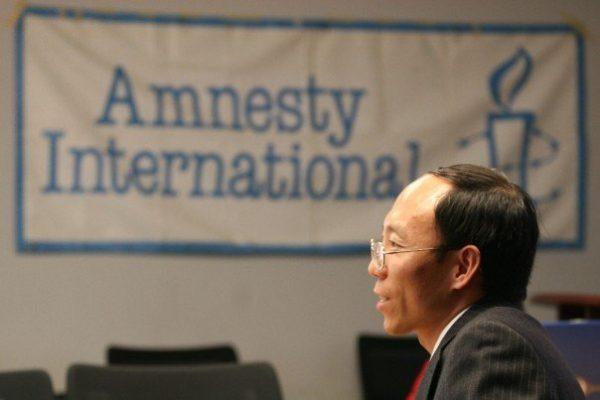
Anyone who sits down with former prisoners of conscience to hear their first-hand experience of being tortured and languishing in prison for their beliefs would know how much external pressure calling for their release can mean for them and their chances of freedom.
Toronto resident He Lizhi, a former Amnesty International prisoner of conscience persecuted in China for his practice of Falun Gong, says international pressure by democratic governments is very effective in helping deter the persecution and buoy the victims’ morale. Conversely, any lifting of this pressure serves to encourage the oppressors.
He Lizhi recalls an experience back in 2002 while he was still illegally imprisoned in China. That year, during the annual U.N. Commission on Human Rights summit in Geneva, a resolution was proposed to condemn China’s human rights record. However, the resolution failed to pass.
“The reaction to that news in China by the regime was one of national celebration,” he said.
Officials at the jail where he was held gathered all the prisoners of conscience together, and the head official told them some “enemy states” wanted to pass a resolution against China but failed.
“This means that the international community is supporting us [the CCP],” the official said.
“Politicians from democratic countries should be aware that when they say something against the crimes happening in China or the crimes against humanity in China, they must publicly condemn it,” said He Lizhi. Merely mentioning human rights in some closed-door meeting won’t have any impact and will be easy for the Chinese leadership to dismiss, he explained.
Influence
Beijing’s ability to get the West to toe its line hasn’t been without attempts to exert influence from the inside. The torrent of media coverage about China’s extreme meddling in Australia’s political system finally prompted Canberra to announce new legislation last week aimed at deterring foreign influence and espionage.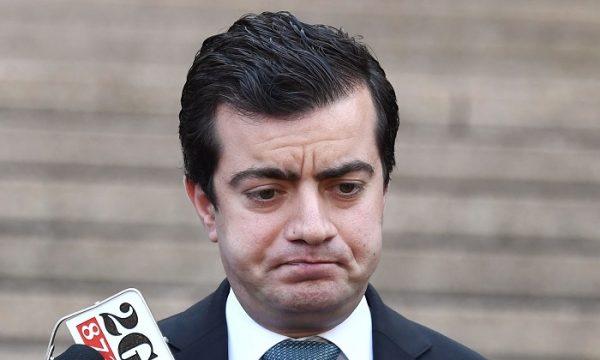
The new wave of media pressure also saw the resignation this week of Australian senator Sam Dastyari, who had forged close ties with a wealthy Chinese donor linked to the CCP and had taken positions favouring Beijing.
Among those lashing out at the new laws was Andrew Robb, former Australian trade minister and architect of the China-Australia Free Trade Agreement; the legislation requires creation of a public registry for people or organizations seeking to influence the Australian political process on behalf of foreign interests.
FairFax Media reported that Robb, after retiring from Parliament last year, immediately secured an AU$880,000-a-year job with a company with close links to the Chinese regime. Last week, FairFax revealed that Robb’s consulting contract with the company is so vague that he would be paid even if he did nothing on the surface. Robb has called the public registry “a political stunt” and has accused his former coalition government colleagues of painting him as “treasonous.”
China’s overboard efforts to exert influence on Canada’s politics have not gone unnoticed by the Canadian Security Intelligence Service (CSIS). In 2010, then-CSIS head Richard Fadden warned that a number of Canadian politicians had developed close links to foreign governments, with China being the most active.
“There are several municipal politicians in British Columbia and in at least two provinces there are ministers of the Crown who we think are under at least the general influence of a foreign government,” he said in an interview with CBC.
The influence, of course, isn’t just limited to political circles. It can also be observed in works of academia and commentaries in media to shape Canadian public opinion, lending legitimacy to the absurd view that the “Chinese vision of rights”—providing social rights such as food and shelter to the people—should be balanced with “Western values” about basic freedoms and criticisms that China shouldn’t kill or torture its own citizens.
Dangerous Direction
A look at China’s relationship with countries without a healthy democracy and rule of law adds to the overwhelming evidence that the direction its influence is oriented toward can never be a benign one.An increasing number of dissidents are being “kidnapped” from countries with friendly relations with China, with the host country doing little to deter the abductions—or even helping Beijing with arrests.
In 2015, Chinese-born Swedish scholar Gui Minhai was kidnapped while in Thailand and later imprisoned in China. Earlier that year, Thailand had deported over 100 ethnic Uyghurs to China despite an international outcry that they could face persecution in China.
Canadian citizen Huseyin Celil was arrested in 2006 while in Uzbekistan and extradited to China despite Canada’s protests.
Last year, with Celil still imprisoned, the Liberal government announced that it had agreed to hold talks on a possible extradition treaty with China.
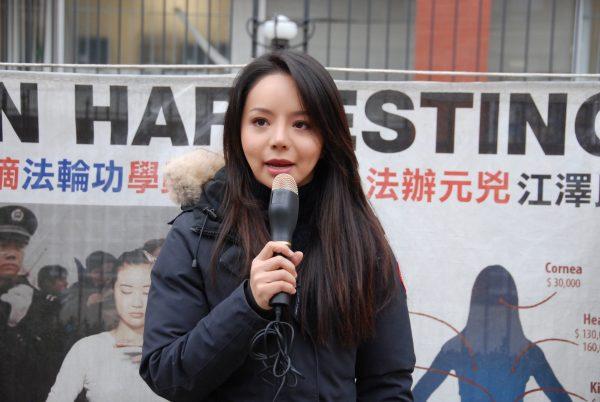
As for Premier Li Keqiang’s declaration that Canada-China relations are entering a “golden era,” Canada would be wise to ensure it’s not “rubbish coated in gold,” as the Chinese idiom goes.
